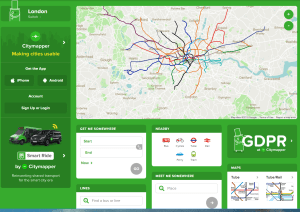How does the lack of GPS signal in an underground bus station affect real time information displays?
GPS repeater system in bus terminals ensure that timetable systems are up-to-date at all times
Background:

Modern passenger busses carry GPS satellite navigation systems to determine their exact location at all times.
The on-board system transmits its location data to a central computer. The computer communicates the information to passengers via an array of interfaces.
The RTI is displayed in several ways, including:
- Visual displays at bus stops show arrival times, service updates and delays.
- Bus company websites provide similar information for website users.
- Most bus companies and some independent service providers present the information via iOS and Android apps.
Challenge:
When inside underground bus stations / terminals, busses cannot receive a live GPS signal. As a result, Real Time Information (RTI) systems are not updated and passengers receive inaccurate timetable information.

The location information now comprises the coordinates of the place where it last had sky-view, just before it entered the underground bus station.
The system continues to transmit stale information until the bus leaves the terminal and it receives live GPS signals again.
There are two additional issues that may affect the time it takes for a bus to be fully online and sending real time information again.
If it has been underground for say an hour, the satellites that the bus was receiving signal from have moved on to another section of their orbit. The GPS receiver would have to download location information of the satellites that are now visible which can take up to 15 minutes, especially in urban canyons. The bus is out of sync with the satellites.
Solution:
A GPS repeater system installed in an underground bus station ensures that:
- Satellite navigation equipment in busses is ‘locked-on’ to the GPS signal at all times when underground.
- When busses are underground they continue to receive live GPS signals and will send real-time information to central computer systems.
- When busses leave the station, there is zero satellite acquisition delay, hence no gap in service.
What does this mean to bus customers?
They have a better experience of the bus company as travellers always say that they want to be kept up to date on arrival times etc.
Increasingly, bus information is being fed into apps which revolve around timely information.
A modest investment in this area delivers improved service quality based on:
- reliability
- punctuality
- real-time availability of timetable information
- updates on incidents affecting the service
- shorter waiting times at bus stops.
FalTech GPS has extensive experience of providing indoor GPS coverage; since 2012 we have supplied and installed over 3,000 systems across a wide range of industries and applications.
If we can help you to overcome the issues caused by being inside a signal-denied space, please do get in touch.
You can email us through the contact page or if you would prefer a good old-fashioned chat we still have a telephone in the office – please call 01326 336 444 in the UK or +44 1326 336 444 from outside the UK.
